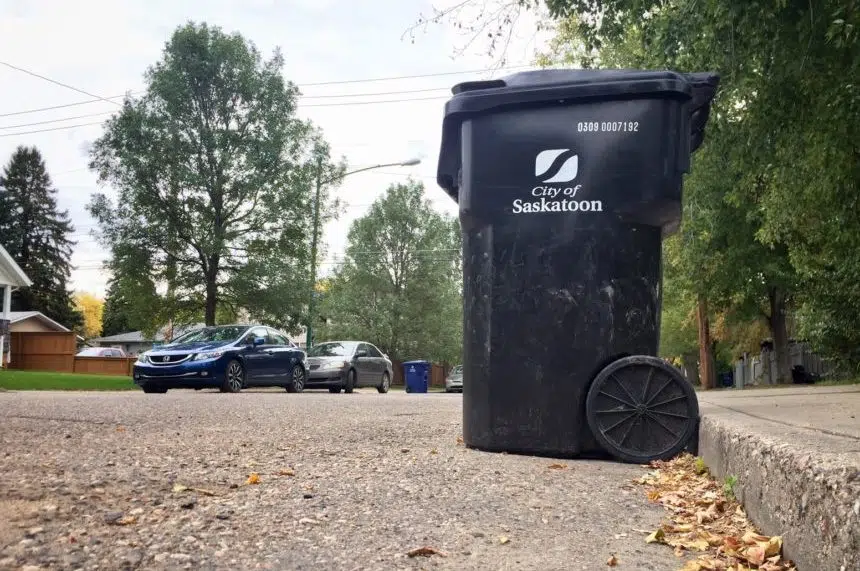City councillors want more clarity for the public when it comes to a proposed waste collection utility program.
Members of the environment, utilities and corporate services committee voted Monday morning to endorse the plan, saying it’s necessary to extend the life of the landfill and prevent future taxpayers from paying even more.
The program would see funding for waste collection move off property taxes, a $75 savings for the average homeowner with a house valued at $371,000.
Instead residents would receive a monthly bill, with minimum monthly costs coming in at $18 — if people subscribe to the smallest garbage bin available.
Staying with the current size, which would become the largest in the new program, would eventually cost homeowners $36.50 each month.
After a weekend of fielding calls and emails from concerned constituents, some councillors on the committee said there should be a focus on communicating why the changes are needed more clearly.
“There’s five dimensions to the cost of doing nothing right now that we need to be able to explain,” Mayor Charlie Clark said.
In the short-term, the cost of doing nothing would be to fill the gap of paying for waste collection properly — a program that has been chronically underfunded in the budget. That would lead to a two per cent property tax increase, or approximately $60 more for the average home.
Long term, those costs would include having to close the city landfill and open a new one within the next 40 years — pegged at between $150-175 million.
The goal of the waste utility program would be to encourage residents to divert food waste into their organics bins and have less garbage — potentially increasing the lifecycle of the landfill to 63 years.
Ward 2 Coun. Hilary Gough also wants it made clear the monthly costs being put forward aren’t just for garbage collection: about $10-11 of the bill would go towards the organics program.
“If you were saying $75 off property taxes and $20 a month just for basic garbage, that would be a massive concern to me,” she said.
“But garbage is only less than half of that.”
She added she’s heard from many residents who want a composting program.
“I don’t hear … that they don’t want to divert more waste from the landfill,” she said.
“Everybody wants to do that.”
Ward 4 Coun. Troy Davies was the only member of the committee to oppose the program.
He said while he understands the principles behind it, the city can’t keep pushing costs onto the taxpayer.
“People are on tight budgets and when they see those numbers it scares them,” he said.
Davies noted he would prefer the waste collection utility be pushed back until council hammers out the 2019 budget plan at the end of November.
“We have (bus rapid transit), bike lanes, a downtown arena, the Remai art gallery, two bridges, two overpasses,” he said.
“I don’t think we have all the numbers in place, and I want to know exactly how many dollars I’m going to bring back to my people I represent and say ‘this is what it’s going to cost for a tax increase this year.'”
Davies said he plans to put forward a motion to delay a decision on the utility at the Sept. 24 council meeting, when he believes there will be more councillors on his side.
The committee also endorsed a one-year pilot project to expand SARCAN’s list of acceptable items to include non-beverage glass containers, which will be discussed at the Sept. 24 meeting. The goal of the program would be to recycle more glass, 90 per cent of which currently breaks before being recycled through the blue bin program.







